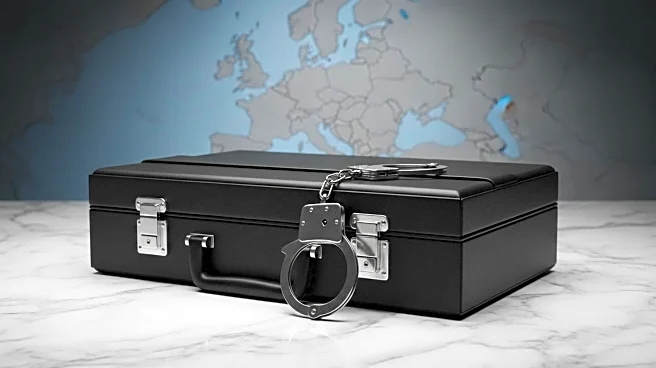What's Happening?
An Italian court in Bologna has approved the extradition of Serhii Kuznietsov, a Ukrainian national, to Germany. Kuznietsov is suspected of involvement in the 2022 Nord Stream pipeline attack, which resulted in significant damage to the pipeline network. The court's decision moves the extradition process to the appeals phase. Kuznietsov, a former Ukrainian military member, denies any involvement in the attack and has presented a defense claiming he was in Ukraine at the time and that he has immunity due to his military status. The case involves complex international legal and diplomatic considerations.
Why It's Important?
The extradition of Kuznietsov is a critical development in the investigation of the Nord Stream pipeline attack, which had significant environmental and geopolitical implications. The attack disrupted energy supplies and heightened tensions between Russia and Western countries. The legal proceedings highlight the challenges of international cooperation in addressing transnational crimes. The outcome of this case could influence future extradition cases and international legal standards for handling similar incidents.
What's Next?
Kuznietsov's legal team plans to appeal the extradition decision, which will delay the process. If extradited, he will face trial in Germany on charges related to the attack. The case may prompt further investigations and legal actions against other suspects involved in the sabotage. The international community will be closely watching the proceedings, as the case could set precedents for handling cross-border criminal activities and cooperation between nations.
Beyond the Headlines
The case raises questions about the protection of military personnel from extradition and the balance between national sovereignty and international justice. It also highlights the potential for geopolitical tensions to influence legal proceedings, as countries navigate complex diplomatic relationships while pursuing justice for transnational crimes.











